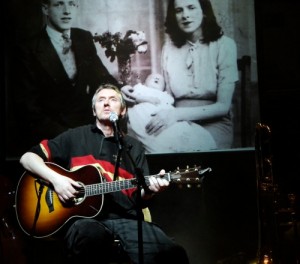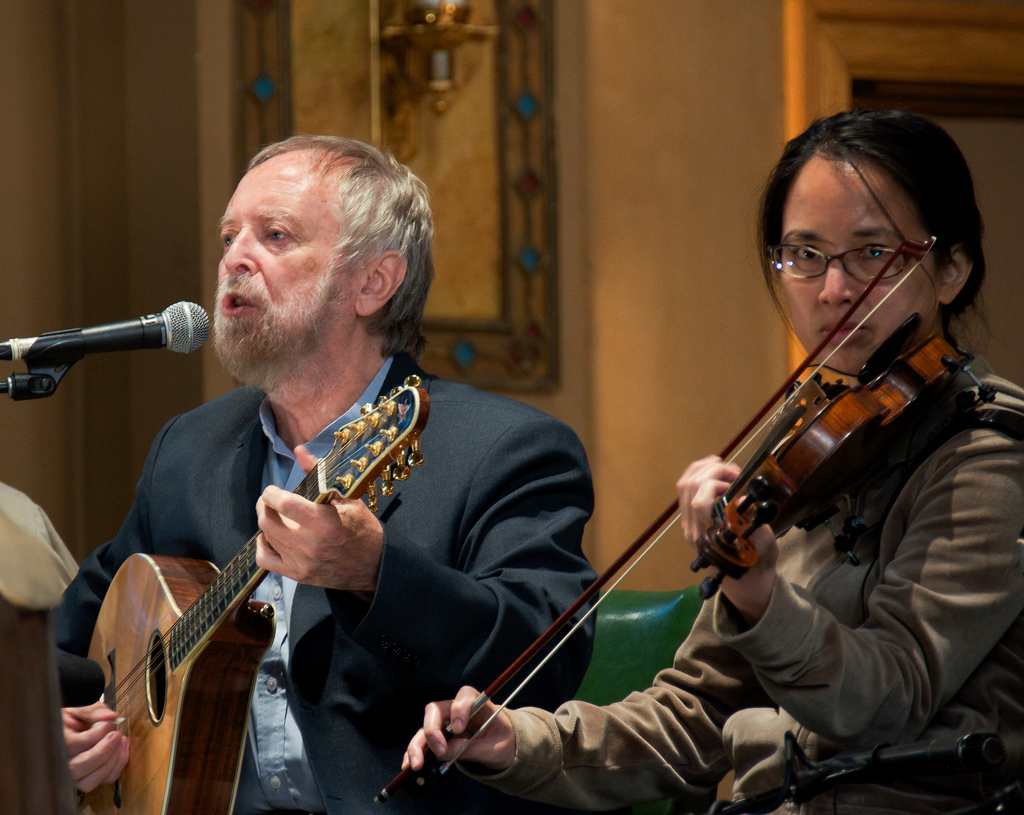I apologize in advance for just now getting this. Danny Ellis’s “800 Voices” arrived in my mailbox a couple of months ago, and then St. Patrick’s Day and all the mayhem surrounding that day landed on me, and I just put it off.
In any case, I don’t want to let my slowness off the mark signify in any way my feelings about “800 Voices.” It’s a brilliant, if haunting piece of work.
Danny Ellis is a survivor of the notorious Artane Industrial School, in Dublin’s Northside, operated with wanton cruelty and unrestrained brutality by the equally notorious Christian Brothers. Clearly, their mission—to care for young children, many of them orphans, some of them categorized as delinquents—was wholly uninspired by Jesus Christ.
Ellis was committed to the school by his ailing mother, who was unable to care for her five children. Two of his brothers went to a school in Rathdrum, and two sisters wound up in an institution for girls in Booterstown. Young Danny Ellis entered Artane in 1955. He remained there for eight years, released when he turned 16. Artane, opened in 1870, was the largest of Ireland’s industrial scholols. According to the Commission to Inquire into Child Abuse, which investigated such schools, the Christian Brothers’ use of corporal punishment was “systemic and pervasive.” Allegations of sexual abuse and neglect also surfaced.
In light of that ugly history, you might suspect that Ellis’s cathartic musical recollection of his sad days at Artane could be a bit hard to take. And make no mistake, Ellis is unflinching in his depiction of his struggle at Artane—the fear, hunger, brutality, anger and lingering resentments.
Take, for example, these searing lyrics from Ellis’s “Innocence Back”:
They shattered our bodies
and they scattered our minds,
they broke us and beat us
’til we were twisted in time.
Then they cut us all loose
like rats in a sack,
now there’s no amount of money
gonna give us our innocence back.
And yet, for all the harrowing memories, “800 Voices” ultimately lands in a very hopeful place. The trauma of life in Artane clearly continued to color Ellis’s worldview for many of his adult years, but ultimately “800 Voices” makes you believe in redemption.
One reason Ellis is able to give voice to the poignant and painful memories that many others have kept submerged is that, after years of suffering what he refers to a “vague discontent,” he was able to connect with his feelings and find peace through meditation.
But way before that, when he was still a child navigating life at Artane, Ellis’s soul remained open to even the faintest possibility of joy. He found comfort in small things—the singing at Mass of another student, Tommy Bonner, and the arrival of summer signified by the Brothers’ issuance of soft red leather sandals to replace the usual stiff hobnail boots. And speaking of that rugged footwear, there’s a cute little song, “Who Trew Da Boot,” about the loud bang produced by an ancient loaf of bread on the dormitory floor after lights out. McCarthy, the ridiculous nightwatchman investigated, and assumed that the loud noise (the bread now safely hidden) was the result of a student tossing one of those heavy boots. “When 150 kids share a joke that the adult is not privy to,” Ellis writes in his liner notes, “suppressed laughter doesn’t remain suppressed for very long.”
But ultimately, Ellis found a sanctuary within Artane’s walls—a “friend,” as he puts it in another song—in music. Early on, he was recruited for the Artane Boys Band. He played trombone, blowing his lungs out. As he sums up his feelings in “The Artane Boys Band:”
There was nothing in this wide world as glorious or grand as the blast of freedom’s yearning from the Artane Boys band.
When he left Artane, Ellis carved out a musical career for himself, playing trombone in a string of Irish show bands, writing tunes for a time, and working as a session singer at London’s Abbey Road studios. (You’ll hear his trombone on the jazzy “Innocence Back.” He hasn’t lost his touch.)
For most of the CD, of course, Ellis accompanies himself on guitar and piano, but he also surrounds himself with some outstanding musicians: Duncan Wickel on fiddle, whistle and and uilleann pipes; River Guerguerian on hand and frame drums; and the mighty John Doyle on guitar bouzouki, mandolin and banjo.
It’s going to be some time before Ireland recovers from the bleak legacy of the industrial schools. Still, Danny Ellis offers ample evidence of the strength and power of the human spirit to overcome even the most tortured past.


